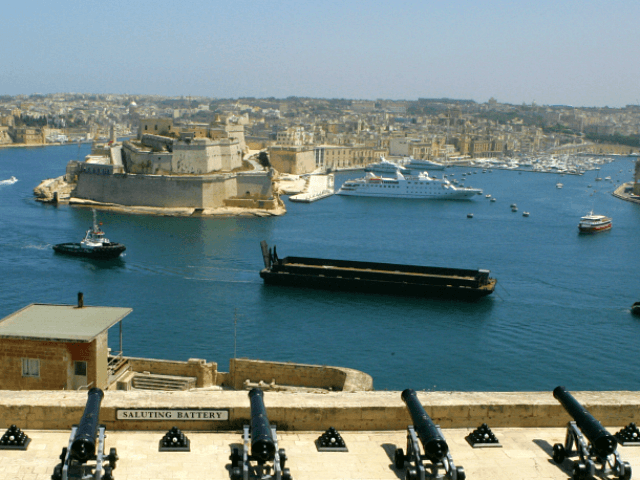Over a hundred illegal migrants have been brought to the tiny, densely populated island nation of Malta.
The 114 migrants — 92 of whom were male, according to the Times of Malta — were picked up by a Maltese military vessel after being spotted in an inflatable which had set off from North Africa, with a Home Affairs Ministry spokeswoman saying they hail from Sudan, the Ivory Coast, Somalia, Bangladesh, Mali, Libya, Yemen, Guinea, Morocco, Nigeria, Egypt, Ethiopia, and Senegal.
The European Union member-state’s left-leaning Labour government has said the migrants will stay in the country, rather than being redistributed elsewhere.
The news comes as Nationalist Party opposition leader Adrian Delia asked whether the country will have to begin recruiting teachers from Pakistan and Bangladesh as the population of the Roman Catholic nation changes.
While not so robust on the ongoing migrant crisis as Italy’s Matteo Salvini or Hungary’s Viktor Orbán, Delia has expressed concern about the scale of the influx and its potential to endanger Malta’s Christian character — prompting accusations of racism from NGOs and the government.
“I’m not advocating the politics of fear,” he answered in his defence.
“But we never had these numbers and we didn’t have these rent price problems… There’s an influx of foreigners in a very short period of time. This has nothing to do with the colour of their skin. We don’t know who they are, we don’t know what exactly they’re bringing with them. Where are they going to live?”
The island nation is already the European Union’s most densely populated member-state, as well as its smallest by both area and total population.
Malta has long been on the frontline of the ‘clash of civilisations’, having served as the island base of the Order of Knights of the Hospital of Saint John of Jerusalem, or Knights Hospitaller, for centuries, protecting Christian sailors from the Ottoman-backed Barbary corsairs and withstanding an epic siege by Ottoman forces in 1565.
It was taken from the Knights by Napoleon Bonaparte in 1798, but liberated by British forces not long afterwards.
It then remained a British colony until the 1960s, with the islanders being collectively awarded the George Cross for bravery during the Second World War, when Malta became a key Allied base and was subjected to a sustained bombardment by the Axis powers.

COMMENTS
Please let us know if you're having issues with commenting.